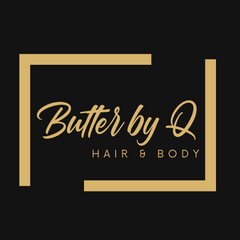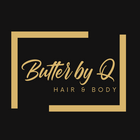Natural Eczema Cream vs Eczema Balm vs Lotion: The Moisturizer Matrix

Which Dermatitis Moisturizer Is Best: Eczema Creams, Balms, or Lotions?
Eczema- or dermatitis-prone skin requires the right moisturizer to protect and restore the skin barrier. But with so many options available, how do you choose between a natural eczema cream, a natural eczema balm, or an eczema lotion? The key lies in understanding how each moisturizer works and which is most effective at locking in hydration and soothing sensitive skin.
Understanding Popular Eczema Moisturizers: Creams, Balms, and Lotions
Moisturizers help protect the outermost layer of the skin, known as the stratum corneum, or skin barrier. People with atopic dermatitis and eczema often have a damaged skin barrier, making their skin more prone to dryness, irritation, and allergens. The weaker the barrier, the harder it is to retain moisture, leading to chronic dry, itchy skin that can cause eczema flare-ups.
That's why choosing the right moisturizer is critical for people with eczema. The right moisturizer can reinforce the damaged skin barrier and fend off dryness, allergens, irritation, and other environmental factors. Moisturizers are classified by their ratio of oil to water:
- Eczema lotions contain the most water and the least oil, making them light and fast-absorbing.
- Creams have a more balanced oil-to-water ratio, offering moderate hydration.
- Balms contain little to no water, making them the most concentrated in natural oils and natural butters, providing deep nourishment.
Natural Eczema Creams: Balancing Hydration and Protection

Eczema creams are popular because they balance oil and water, making them more hydrating than lotions but less greasy than balms.
- Consistency: Thick but still spreadable
- Absorption: Absorbs moderately into the skin
- Best For: Mild to moderate eczema, daily use, and under makeup or clothing
- Downside: It may not provide long-lasting protection compared to balms
Natural eczema creams contain shea butter, aloe vera, and colloidal oatmeal to soothe inflammation and reduce itching. However, because they contain water, they often require preservatives, which may irritate sensitive skin. If you have eczema, avoid parabens, formaldehyde-releasers, and isothiazolinones, as these preservatives are known as skin irritants.
Eczema Balms: The Ultimate Moisture Lock & Eczema Moisturizer

Natural eczema balms provide the most intense hydration because they contain high amounts of oil and little to no water. This allows them to form a thick, occlusive layer over the skin, sealing in moisture and preventing irritants from penetrating.
- Consistency: Thick, waxy, or buttery
- Absorption: Slowly absorbs, leaving a protective barrier
- Best For: Severe eczema, cracked or extremely dry skin, overnight use
Balms, like Butter by Q's Natural Eczema Balm, are ideal for those who need deep moisture without fillers, preservatives, or synthetic ingredients.
Eczema Lotions: Lightweight, Watery, Less Effective

Eczema lotions are the lightest type of moisturizer, containing the most water and the least oil. While they absorb quickly, they evaporate faster, making them less effective for long-term hydration.
- Consistency: Thin, watery
- Absorption: Fast-absorbing but not long-lasting
- Best For: Mild dryness, humid climates, or daytime use
- Downside: Does not provide strong moisture retention for eczema-prone skin
Lotions may be a good option for mild eczema but are generally not recommended for those experiencing severe flare-ups or extreme dryness.
Is a Natural Eczema Cream, Natural Eczema Balm, or Eczema Lotion Best?
When choosing an eczema-friendly moisturizer, oil content is key. The more oil in a product, the better it is at sealing in moisture and keeping irritants out. That's why greasy ointments and balms are the best natural eczema treatment and atopic dermatitis products. Here's a breakdown of each type of moisturizer:
| Moisturizer Type | Oil-to-Water Ratio | Texture | Absorption | Best For |
|---|---|---|---|---|
| Lotion | Low oil, high water | Thin, watery | Fast-absorbing | Mild dryness, daily hydration |
| Cream | Moderate oil and water | Thicker, smooth | Medium absorption | Moderate dryness, daily hydration |
| Balm | High oil, little to no water | Thick, occlusive | Slow absorption | Severe dryness, eczema, cracked skin |
While natural eczema creams can provide good hydration, they still contain water, which can evaporate quickly from the skin. Due to their high water content, lotions are even less effective at maintaining moisture. On the other hand, natural eczema balms deliver extended, all-day protection, deeply nourishing the skin without preservatives or fillers that could irritate sensitive skin.
Tips on Choosing the Best Eczema Moisturizer

When selecting a moisturizer for eczema-prone skin, keep these tips in mind:
- Look for oil-rich formulas: The higher the oil content, the better it will be at sealing in moisture.
- Choose premium oils: Not all oils for eczema are created equal. When looking for an eczema-friendly oil in a moisturizer, choose products with jojoba oil, rosehip oil, shea butter, avocado oil, or apricot oil. These oils are proven to combat eczema symptoms effectively.
- Avoid artificial fragrances and preservatives: These irritate sensitive skin and trigger flare-ups.
- Choose thick, occlusive textures: Balms and ointments are the best at protecting the skin barrier.
- Consider natural ingredients: Shea butter, mango butter, and jojoba oil provide deep hydration without synthetic additives.
FAQs: Natural Eczema Moisturizers
Check out some frequently asked questions about eczema moisturizers.
The best moisturizer for eczema contains the highest amount of oil. Balms and thick creams are the most effective at sealing in moisture and protecting the skin barrier.
Balms and ointments stay on the longest because they have little to no water content, preventing them from evaporating quickly.
An oil-rich balm or ointment is recommended for severe eczema, as it provides deep hydration and long-lasting protection.
Natural lotions may work for mild eczema but typically do not provide enough hydration for moderate to severe cases.
They are fragrance-free, free from harsh preservatives, and made with gentle ingredients like shea butter and colloidal oatmeal.
It's simple: to maximize the power of your moisturizer, apply it within three minutes of bathing or showering. This helps reduce inflammation while keeping your skin hydrated.
Get the Best Eczema Moisturizer – With Butter by Q's Natural Eczema Balm

If you're searching for a natural eczema cream but need something even more effective, try Butter by Q's Natural Eczema Balm. Made with 100% natural ingredients, this balm is designed to lock in moisture, soothe irritated skin, and help restore the skin barrier.
Unlike water-based creams and lotions, our balm provides long-lasting hydration that helps reduce itching and discomfort for eczema sufferers.
Give your skin the nourishment it deserves with a natural balm for eczema—because when it comes to eczema-prone skin, thicker is better.

